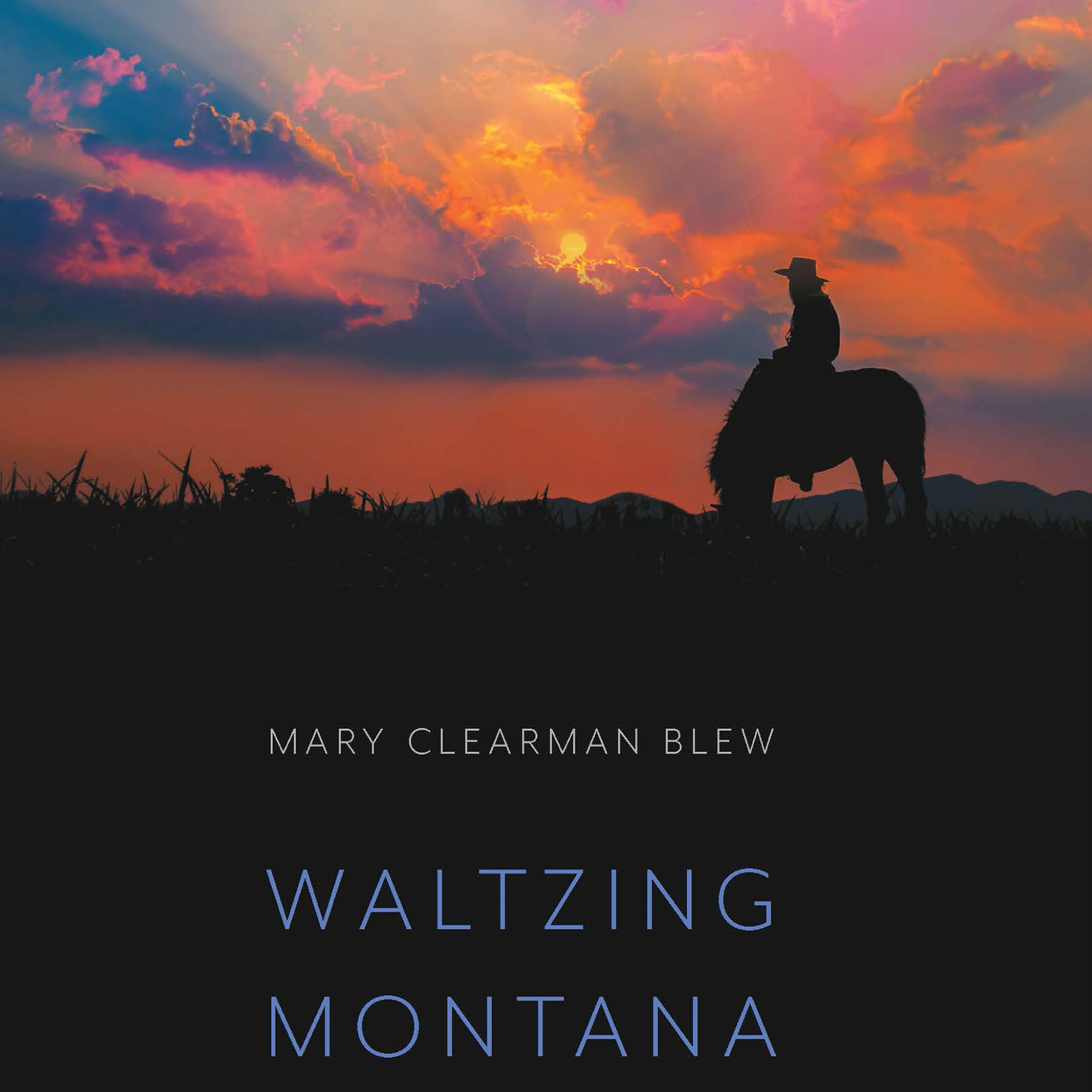If you’re looking for a romanticized, mythologized version of life on a ranch in rural Montana in the 1920s, Mary Clearman Blew’s latest novel, “Waltzing Montana” likely won’t satisfy. While the novel is steeped with cowboys, horses, and cattle set in the Judith River Basin in the high plains of the state, Blew dumps the sanitized Western for a closer to the bone story, one that unflinchingly grapples with the realities of a people and place defined by uncertainty and determinedly connected by love and heartbreak.
“Waltzing Montana,” inspired by the legendary horseback-riding nurse Edna McGuire who lived from 1885 until 1969 on a sheep ranch in central Montana, tells the story of midwife Mildred Harrington during the summer of 1925. Riding back home at sunset after delivering a baby at the Svoboda Ranch, Mildred and her horse, Smokey, discover an injured man in the brush along the creek bank. Turns out, the injured stranger is Mildred’s former childhood sweetheart, Pat Adams. Pat and Mildred haven’t seen each other in years after their teenage relationship resulted in a bitter familial dispute, causing unmentionable abuse and enduring heartache for Mildred. Wounds she still carries today. Pat tells Mildred he was thrown from his horse and she helps him back to her homestead to tend to his wounds. In the morning, with the help of Renny, her Métis ranch hand who over the years has become a substitute father, they drive Pat to the Hospital of the Good Samaritan in Fort Maginnis.
Leaving Pat in the care of Sister St. Paul, the nun who successfully demanded that Mildred’s father allow her to attend high school and then train as a nurse, Renny and Mildred both begin to doubt Pat’s story. His injuries don’t add up. Under the care of Sister St. Paul, Pat, who’s only just returned home to his father’s failing ranch after studying law in Missoula, tells her what really happened and now fears for Mildred’s safety. The cruel past creeps into the story as a group of disparate friends and members of an isolated community ravaged by the 1918 flu epidemic, World War I, and endless drought band together to protect their beloved midwife.
Blew, who grew up on a small cattle ranch outside of Lewistown on the site of her great-grandfather’s 1882 homestead, doesn’t shy away from the harsh realities of what ranch life demanded. “Work,” she writes, “A lot of work. That was what life on a ranch was.” No matter what is happening in “Waltzing Montana,” the steady, unending work takes precedence, even if women are in labor and Mildred has journeyed through the night to care for a neighbor. Hay must be raked, vegetables canned for the winter, and boiled laundry hung on the line. While there’s plenty of action to drive the narrative as the novel works to unspool the past between Mildred and Pat and their feuding fathers, Blew honors these lives by reminding the reader about the ranch chores that shaped daily life, and for women, often their dire consequences. As Sister St. Paul reflects: “What this country did to women. To Mildred’s mother, dead before her time from overwork. Mildred living out there now, such a pretty girl, and miles from town with no company for weeks on end except for Renny and a shrinking scatter of neighbors whose babies she delivered and whose scrapes and bruises and coughs she doctored.”
There are plenty of laughs and smiles throughout the book, with characters like the newly placed Boston-born Father Hugh McHugh who knows how to box and admires the friendship he develops with Pat and the cowboy Albert. Then there’s Renny’s aunt Josie Archambault who lived in the old Métis settlement, known for her own chokecherry wine and cares for Pat after he’s discharged from the hospital. It’s a cast of people, some native, some emigrants, who’ve found their way to cattle ranches, convents, churches, and hospitals and always have time to brew a pot of coffee for a neighbor. And, when the moment calls for it, a finely tuned fiddle and a waltz.
Blew’s close attention to gender and what women in particular had to endure living and working on ranches elevates “Waltzing Montana” in the Western genre. This should come as no surprise as Blew has long established herself as one of the strongest voices of the West, winning numerous awards including the Western Literature Association’s Distinguished Achievement Award throughout her long writing career. She has written or edited fifteen fiction and nonfiction books and has taught in the English department at the University of Idaho since 1994. “Waltzing Montana” is the gritty, beautiful, and startling western love story that does, indeed, satisfy.
